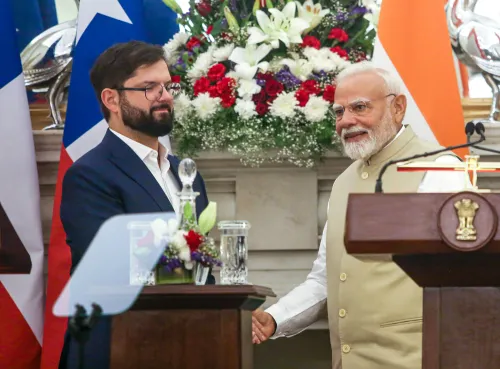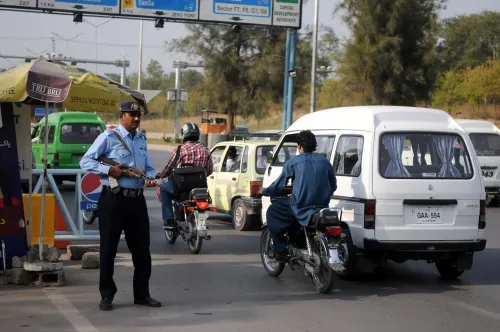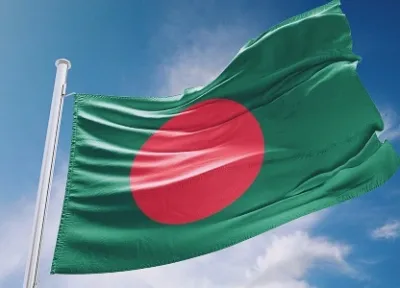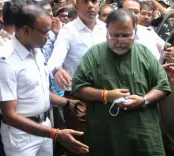Is Gaza Aid Operations Under Severe Strain?
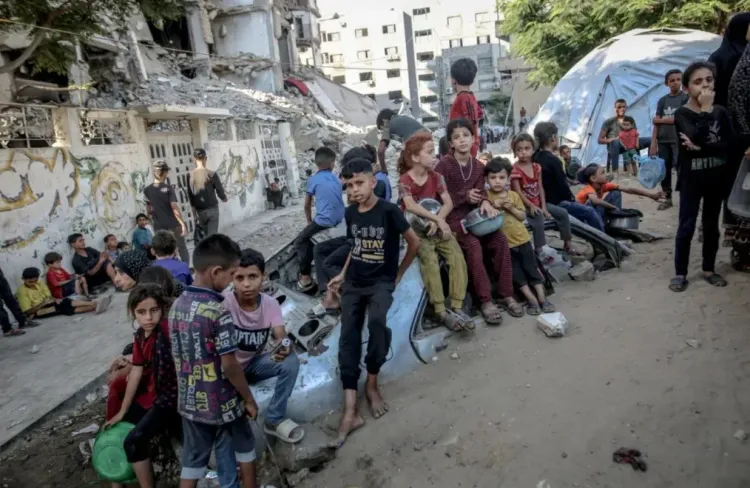
Synopsis
Key Takeaways
- UN humanitarian operations are under severe strain due to security risks and supply issues.
- Urgent action is needed to facilitate safe aid delivery.
- The hunger crisis in Gaza has never been more critical.
- Hospitals are overwhelmed, risking closures due to lack of supplies.
- Protective measures for vulnerable populations are essential.
United Nations, July 24 (NationPress) - The distribution of essential supplies to the starving population in Gaza and the ongoing security threats to aid workers have placed relief efforts in a critical state, according to UN humanitarian officials.
Relief personnel are facing serious security threats. The crossings for supplies are inconsistent, leading to frequent delays or blockages of essential items. The volume of aid reaching Gaza is merely a fraction of what is urgently needed, as reported by the UN Office for the Coordination of Humanitarian Affairs (OCHA) on Wednesday.
OCHA emphasized that Israel must facilitate the safe and uninterrupted flow of aid, permit the entry of essential equipment and fuel, and open all crossing points to restore vital supply routes.
“Humanitarian workers must be allowed to operate safely, individuals should be able to move freely, and supplies, including those from the private sector, must reach all areas of Gaza,” OCHA stated.
If these conditions are met, the United Nations is prepared to prioritize the urgent provision of food, water, shelter, medical assistance, and protection to the civilians of Gaza, who have endured unimaginable suffering for too long, as reported by Xinhua.
The UN agency is ready to significantly expand humanitarian efforts across Gaza, particularly during any ceasefire, as it has done in past conflicts.
OCHA cautioned that the hunger crisis in Gaza has reached unprecedented levels, with reports of mass starvation spreading throughout the territory, affecting both aid workers and the vulnerable populations they serve.
Reports indicate that aid personnel are collapsing from hunger and exhaustion.
Despite the dire circumstances, aid workers continue to provide crucial assistance whenever and wherever they can.
Nevertheless, OCHA emphasized that the Israeli authorities must enable the timely delivery of significantly more aid throughout all regions of the Gaza Strip.
Hospitals in Gaza are overwhelmed and unable to handle the influx of patients, including those injured in ongoing conflicts, due to shortages of supplies and fuel.
Local health officials reported that several health facilities were forced to shut down recently due to a lack of fuel.
More hospitals, including Al Shifa, face imminent closure within the coming days.
Humanitarian organizations reported that individuals with disabilities lack food, assistive devices, and medical care.
Protective measures must be implemented for civilians, particularly the tens of thousands of elderly individuals and those living with disabilities.
UN humanitarian officials stated that the Israeli authorities hold the exclusive power to decide who, how, and what enters the Gaza Strip, highlighting the enormous logistical challenges involved.
To collect supplies that have reached the heavily fortified Israeli crossings around Gaza, drivers require multiple access approvals and a cessation of hostilities for the gates to open, OCHA noted.
UN Under-Secretary-General for Humanitarian Affairs Tom Fletcher informed the Security Council last week that movement necessitates navigating an obstacle course of coordination with Israeli forces, traversing active conflict zones, traveling on damaged roads, and often waiting at holding points or passing through areas controlled by criminal elements.
“Civilians approaching UN trucks are frequently shot at,” OCHA indicated.
“Safely collecting supplies necessitates reliable assurances that military forces will not engage or be present along convoy routes.”
Israeli UN ambassador Danny Danon announced new restrictions against OCHA personnel during his address at the Security Council.
Israel will no longer automatically grant visas to OCHA’s international personnel, limiting them to one-month terms, Danon stated.
Stephane Dujarric, Chief Spokesman for UN Secretary-General Antonio Guterres, remarked that any punitive measures will only exacerbate the challenges preventing humanitarians from reaching those facing hunger, displacement, and deprivation.

